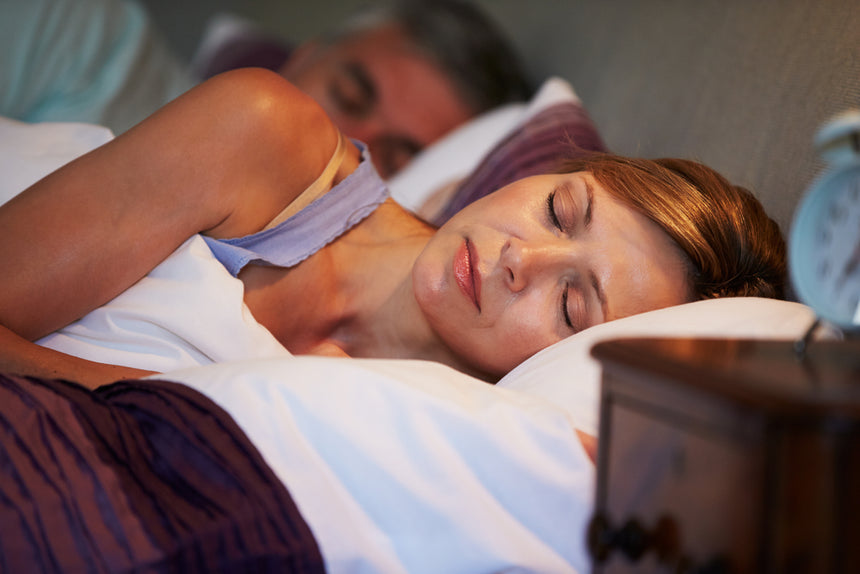5 Ways to Boost Your Sleep Quality
Sleep and sleep quality are two different things. Most of us understand sleep is necessary for improved health and wellness, but that doesn’t always translate to understanding sleep quality.
Sleep quality is your ability to fall asleep and stay that way so your body can go through the proper sleep cycles. If you’re constantly waking up in the middle of the night or if it takes you hours to fall asleep, your sleep quality is probably on the low end. You may be spending eight hours in bed, but you may be looking at just 4-5 hours of actual sleep.
If that sounds familiar, you should keep reading. Below are five easy ways you can increase the quality of your sleep. Improved sleep quality means you’ll be more energized, in a better mood, and have better overall health markers!
- Work with Your Circadian Rhythm
The human body does best when it’s awake during daylight hours and asleep when it’s dark. The gland responsible for releasing sleep hormones is actually connected to sensors in your eyeballs. Your body wants to be asleep during the night—so let it.
Once your body starts feeling tired, don’t fight it. Allowing the natural systems in your body to function as they should will do wonders to your sleep. So, let those yawns happen and let your body begin to relax when it wants.
One of the best ways to keep your circadian rhythm on track is to expose yourself to daylight. If you work under florescent lights all day and then go home when it’s dark, take a 10-minute walk during your lunch break.
Giving your eyes a chance to see the sun will actually improve the timing of melatonin release in your body, helping you stay asleep.
- Nap Smart
Naps are great, especially after big meals or during Sunday afternoons. But naps aren’t always great for getting a full night’s sleep. In fact, if you sleep too long during your nap, there’s a good chance you’ll struggle to fall asleep and stay that way.
According to some research, a 10-20 minute nap is the most refreshing and the least likely to impact how you sleep at night. A power nap can also help improve your mood and productivity, which is probably why companies such as Nike and Google allow their employees to take them.
If you feel like a nap is in order, set your alarm for 30 minutes. Giving your body time to rest without allowing it to go through the entire sleep cycle is the best way to get the benefits without making it hard to sleep during the night.
- Exercise
Exercise does wonders for your body. Not only does it improve your mood, your body composition, and overall health markers such as blood sugar, cholesterol, and blood pressure, but it can also help improve how well you sleep.
Although scientists aren’t sure exactly why exercise has such a positive impact on sleep, they think exercise works because it increases body temperature and heart rate, which means they are more likely to lower when you’re ready to sleep. Exercise can also increase endorphin levels, which decreases stress, depressive feelings, anxiety, three major reasons people stay awake at night.
If you do add exercise to your daily routine, try not to work out too late. It can sometimes take your body 2-3 hours to “come down” from a workout and start to get sleepy.
- Limit Nighttime Sugary Carbs, Caffeine, and Alcohol
Your diet has an enormous impact on your sleep quality. You may have noticed that when you have a few drinks and a big, carb-heavy meal, you don’t sleep as well. Unfortunately, that’s the way it goes.
Alcohol may help you fall asleep faster, but studies have found it can reduce REM (rapid eye movement) sleep, which means you’ll probably feel much less rested the next morning than you usually do.
Carbs and sugar can impact your deep sleep as well. Increased blood sugar can change the way hormones work in your body, which can make it difficult to stay asleep. Caffeinating through an afternoon or evening “sugar crash” can also make it difficult to get to sleep at night.
Although we’re definitely not anti-caffeine people, we suggest you don’t have any after 2pm. If you must have an evening cuppa, go for the decaf.
- Learn Relaxation Techniques
Turning your brain off in order to get to sleep can feel like an impossible task. If that’s the case for you usually, it’s probably time for you to learn a few relaxation techniques.
Deep breathing, meditation, and body scans, are great ways for you to retrain your brain to help you sleep. When your brain can concentrate on your breath or on a particular spot on your body, you can slow your heart rate and calm your breathing. Your mind is important in making your body to be physically ready for sleep, so it’s important for the two to work together.
